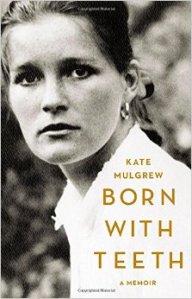
Season 2 of Amazon’s ‘The Boys’ is gruesome but good
I was excited about the second season of “The Boys,” and in some ways it was satisfying and in others, not so much. I may be in the minority here when I say I don’t love the gruesome scenes like heads exploding and Homelander doing weird creepy stuff. I saw a comment on social media that complained that the one-episode-per-week format was “offensive,” which I thought was kind of funny because that’s not what I found offensive about the series.
I realize this is a TV-MA show, and I could turn it off if I don’t want to watch gratuitous violence. I have a love-hate thing with shows like this that are well written but which I also find creepy or gross. I had similar issues with “Game of Thrones” and “Stranger Things.” Why don’t I just not watch? Because I like other things about the show. I like “The Boys” despite the shock value, not because of it. (And yes I know the comic is supposedly even more graphic than the series, but I have not read it.)
So what did I like I about Season 2? First and foremost, I love Karl Urban as Billy Butcher, even though his cockney accent is laughably (purposely?) bad. He is the antihero who stops just short of being the villain.
I loved all the Billy Joel references, and I found the Deep and A-Train stories funny; the “Church of the Collective” was an obvious mockery of Scientology and I’m here for it. Mother’s Milk not wanting anyone to know he’s watching “Outlander” is the kind of thing that I love about this show; the boys are all so tough, steeped in this culture of toxic masculinity, but then they watch “Outlander” or talk about The Golden Girls. Frenchie especially is one my favorites. I love his sensitivity, and seeing his friendship with Kimiko progressing.

I like the satire and humor of the show but although I found the Stormfront story – and its commentary on our current political climate – to be anything but subtle, some fans were apparently rooting for her and Homelander, which I find confusing and disturbing. I was happy that they wrapped up Stormfront’s story, and I hope we have seen the last of her. I am looking forward to seeing what happens in Season 3. I hope they will tone down the yuck.
‘The Trials of Koli’
Back in April, I reviewed M. R. Carey’s “The Book of Koli,” the first novel in the post-apocalyptic Rampart Trilogy. Five months later, Carey released the second book, “The Trials of Koli,” which at 496 pages, still felt too short, as I am now eagerly awaiting the third book, which comes out in March. I’m not sure why the books are being released in such quick succession – and in paperback! But I’m not complaining.
The books are about this guy named Koli who lives in this little village, many years after a huge war wipes out most of the world’s inhabitants, and also the trees in the forest eat people now, so it’s a dangerous time.
In the first book, a bunch of crazy stuff happens in his village which leads to him leaving all he’s ever known and venturing out into said murderous forest.
I hope the third book wraps up the story satisfyingly, and that it will be made into a movie, as was the case with Carey’s book “The Girl With All the Gifts.” (I actually prefer the Koli stories more than the zombie book.)
Other stuff
A sequel to the 1988 film “Willow” is in the works. The Disney+ series will be produced by Lucasfilm, and Ron Howard is an executive producer. Warwick Davis will reprise his role as Willow Ufgood.
I am excited about the new season of “The Mandalorian” which is on track for an Oct. 30 release, which I talked about last time, and the new season of “Star Trek: Discovery” started last week. I haven’t started watching it yet but I will review it when I get a chance. It’s a great show and I’m looking forward to watching Season 3.
Photos: “The Boys,” Amazon Prime; “The Trials of Koli,” Orbit.

Follow Earth to Shawna on Facebook:
https://www.facebook.com/Earth-to-Shawna-1476049362698628/?fref=ts















